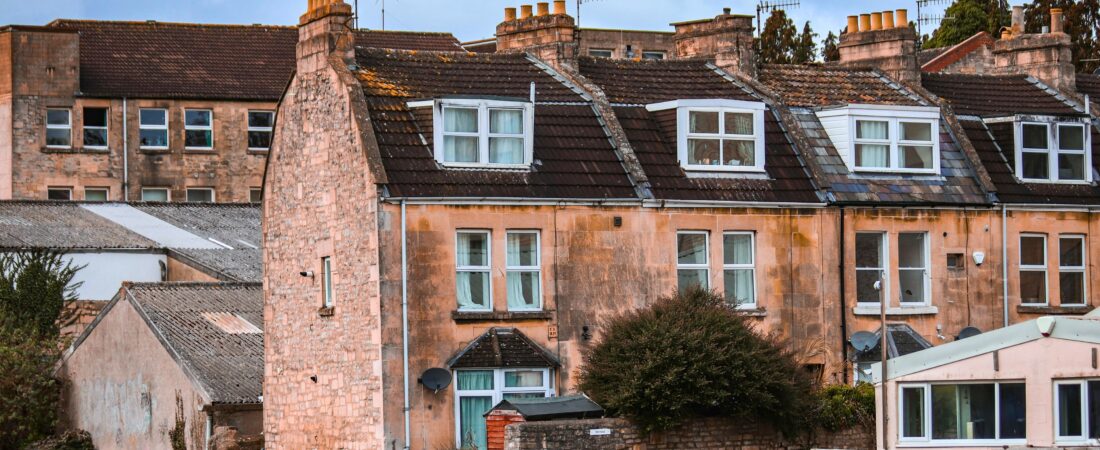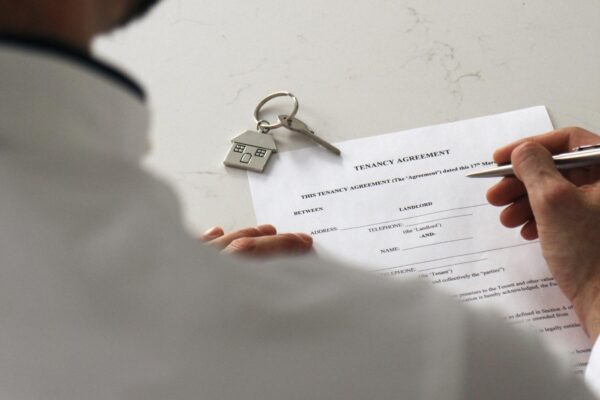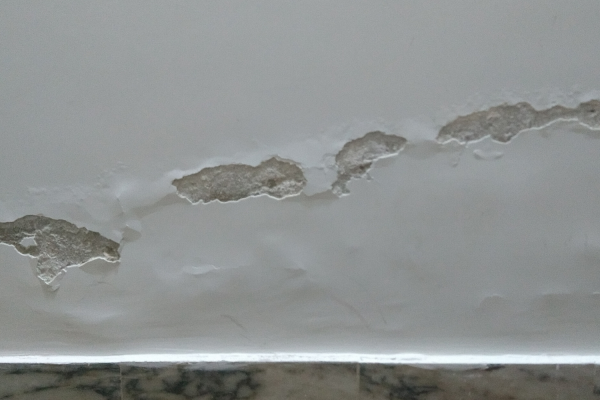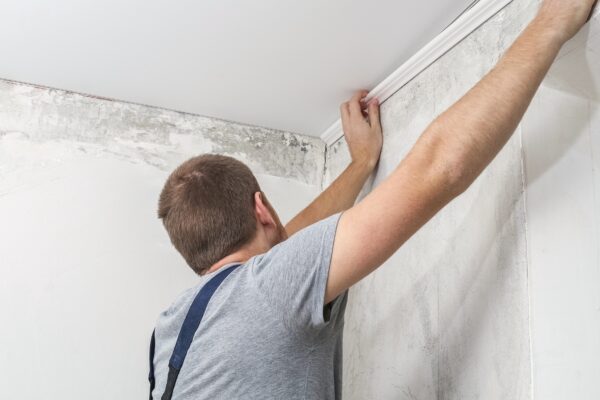The government is planning to introduce a Decent Homes Standard for the private rented sector for the first time, as part of the Renters’ Rights Act.
Once it becomes law, landlords in the private rented sector will be legally required to meet a minimum standard for property conditions.
A public consultation is now open and will run until 10th September 2025. It seeks views on a reformed Decent Homes Standard that would apply to both social and private housing.
While social housing has been subject to these requirements since 2000, this new consultation aims to update them and consider how a similar approach could work for private rentals.
Here you’ll find what’s being proposed, what it could mean for private landlords, and how to respond to the consultation before it closes.
- What is the Decent Homes Standard?
- The Renters’ Rights Act’s role
- The new Decent Homes Standard 2025 consultation
- When will the Decent Homes Standard apply to the private rented sector?
List your property in minutes. Join over 1.4 million successful lets on OpenRent and skip the high street fees. Get Started Today
What is the Decent Homes Standard?
The Decent Homes Standard was created to set minimum quality requirements for social housing in the UK, excluding leasehold and shared ownership properties. In simple terms, a home must:
- Be in a reasonable state of repair
- Have reasonably modern facilities and services
- Provide adequate heating and insulation for thermal comfort
- Meet current legal minimum standards for housing
This standard was introduced in 2000 to raise the quality of social housing.
What’s changed through the years?
The Decent Homes Standard was first introduced in 2000 and updated in 2006 to align with the Housing Act 2004, which brought in the Housing Health and Safety Rating System (HHSRS).
The standard was developed under the Blair government to ensure that residents of social housing (such as council homes and housing association properties) have a guaranteed minimum level of living conditions.
The original target was for all social housing to comply with the standard by 2010. However, some local authorities were unable to meet this deadline and sought extensions. In some cases, the costs of necessary repairs were so high that demolition of certain buildings became the chosen option.
In November 2020, the government reaffirmed its commitment to review and improve the standard through the Social Housing White Paper. This commitment was strengthened in the 2022 Levelling Up White Paper, which set a target to reduce the number of non-decent homes (in both social and private rented sectors) by 50% by 2030.
The Conservative government introduced the Renters (Reform) Bill in May 2023, which aimed to bring the Decent Homes Standard into the private rented sector. Although the bill didn’t pass before the 2024 general election, the current Labour government is pursuing similar plans through the Renters’ Rights Act.
A consultation opened on 2nd July 2025 seeking to update the Decent Homes Standard and consider how it could be applied to privately rented properties.
You might also be interested in…
- How to Conduct a Property Viewing Online
- When Will Section 21 Be Scrapped?
- 5 Mistakes Tenants Make in Their Property Enquiries (and How to Fix Them)
- What Tenants Need to Know About the Renters’ Rights Act
- 6 Most-Viewed Properties of the Month
The Renters’ Rights Act’s role
The Renters’ Rights Act provides the legal framework to apply the Decent Homes Standard to privately rented properties, including Houses in Multiple Occupation (HMOs).
While the Act establishes broad rules and enforcement powers, the detailed criteria and requirements will be defined through secondary legislation.
One key point we do know is that not meeting these standards will become a criminal offence, with local councils able to fine landlords up to £7,000. Moreover, local councils will be allowed to inspect properties to check compliance and address any hazards.
The Secretary of State will have the authority to create specific regulations covering areas like property repairs, safety features, and heating.
The new Decent Homes Standard 2025 consultation
At the moment, the Decent Homes Standard only applies to social housing. However, the Renters’ Rights Act includes plans to extend these requirements to privately rented properties.
On 2nd July 2025, the government opened a consultation titled “Consultation on a reformed Decent Homes Standard for social and privately rented homes”.
Unlike the previous government, which considered creating a separate standard for the private rented sector, the current Labour government is proposing one standard that covers both social and private rented housing.
What reforms are under consideration?
According to the proposals set out in the government’s 2025 consultation, a property (whether in the social or private rented sector) would be considered “decent” if it meets five criteria under the updated Decent Homes Standard.
1) Homes meet the current statutory minimum standard
The updated Decent Homes Standard would continue to require that all rented homes are free from serious health and safety hazards, such as severe damp, faulty electrics, fire risks, or dangerous structural issues. These are known as Category 1 hazards under the Housing Health and Safety Rating System (HHSRS).
For private landlords, this isn’t a new requirement. It reflects existing duties under the Landlord and Tenant Act 1985 and the Housing Act 2004, which already require landlords to keep properties fit for human habitation.
Most responsible landlords already take steps to avoid these risks, but the Renters’ Rights Act would make compliance more visible and enforceable.
Local councils will remain responsible for inspections, and failure to address serious hazards could result in fines of up to £7,000, with higher penalties in cases of repeated breaches.
Feel in control of your tenancies with our all-inclusive tenancy creation and management tool. See How Rent Now Works
2) Homes meet a reasonable state of repair
The proposed Decent Homes Standard would go beyond just fixing health and safety hazards. It introduces a clear expectation that properties must be in a good general state of repair.
Unlike previous standards, it focuses on the condition of components rather than their age, meaning landlords won’t need to replace older features unless they are faulty. Examples of disrepair include damaged external doors that don’t lock properly or internal walls with crumbling plaster.
While current laws already require landlords to maintain the structure and key installations, this reform sets a more proactive standard. Instead of waiting for issues to become serious or unsafe, landlords would be expected to carry out timely repairs and regular upkeep to prevent problems from escalating.
For landlords who already stay on top of maintenance, this won’t mean much change. However, those who take a reactive approach will need to shift towards more preventive care.
3) Homes have reasonably modern facilities and services
This proposed reform moves away from judging homes by the age of their facilities and instead focuses on whether they are functional, safe, and fit for purpose. To meet the updated Decent Homes Standard, a rented property must have at least three of the following four:
- A kitchen with adequate space and layout
- A properly located bathroom and WC
- Adequate external noise insulation
- Common entrance areas (in blocks of flats) that are a suitable size and layout
The proposals also include new safety requirements. Windows that pose a fall risk must be fitted with child-resistant restrictors that adults can override. When landlords replace doors or windows, they’ll need to ensure modern security features are included, like working locks and door chains.
All properties must also be let with basic floor coverings, such as carpet, vinyl, or tiles.
There are currently no legal requirements in the private rented sector for modern kitchens or bathrooms, or for window restrictors. However, this change would make those expectations clearer and enforceable. Landlords with old, substandard setups would need to upgrade.
4) Homes provide a reasonable degree of thermal comfort
The new standard will require rental homes to be warm throughout, not just in a couple of rooms. Heating systems must now provide heat to every habitable room and be programmable, allowing tenants to control temperature and timing using a thermostat or programmer.
This addresses the current loophole where limited central heating combined with plug-in heaters could technically meet outdated standards.
The government also proposes linking thermal comfort to future energy efficiency rules, aligning with plans to raise the minimum EPC rating to a C.
While most landlords with modern central heating won’t need to make changes, those with older setups (like gas fires in one room or partial electric heating) would need to upgrade to meet the new expectations.
5) Homes should be free of damp and mould (New criterion)
For the first time, the Decent Homes Standard will explicitly require rental properties to be free from damp and mould, except for the most minor traces.
Any damp or mould that presents a meaningful health risk, even if it doesn’t meet the threshold of a Category 1 hazard, will mean a property fails the standard. Landlords will be expected to act as soon as they become aware of damp or mould, without waiting for an HHSRS inspection.
This means addressing the root causes, such as poor ventilation, leaks, insulation issues, or condensation. The proposed reform goes further than current law by tightening expectations on what’s considered acceptable.
Where mould is a serious risk, landlords will eventually be required to carry out repairs within a set timeframe under Awaab’s Law (still pending details for private lets). Tenants must be shown how to use heating and ventilation properly, but landlords will remain responsible for fixing any structural or environmental causes.
Find trustworthy tenants quickly! Our referencing checks credit, employment, and rental history. Order Tenant Referencing
How can you respond to the consultation?
The consultation will be open for 10 weeks, from Wednesday 2nd July 2025 until 11:45 pm on Wednesday 10th September 2025.
You can share your views by completing the online survey available on Citizens Space, which is the preferred method.
Most questions are open to all respondents, but some are specifically aimed at social housing landlords and tenants, or private rented landlords and tenants. The guidance states these will be clearly marked to help you identify which apply to you.
When will the Decent Homes Standard apply to the private rented sector?
The government intends to give landlords plenty of notice before the Decent Homes Standard starts applying to the private rented sector, with a likely implementation date around 2035 or 2037.
It’s important to remember that private landlords already have a legal duty to ensure their properties are fit for human habitation. This includes making sure homes are free from serious hazards, as defined by the Housing Health & Safety Rating System (HHSRS).




By and large I wholeheartedly agree with the proposed changes and as a landlord I try hard to even outperform the proposed standards. I have one ‘tricky’ property though and would appreciate others’ views. I own a flat in a converted Georgian house. Its one of five freehold flats and has a communal maintenance agreement. It is the only flat in the block which is tenanted. Recently the flat has shown signs of water ingress which has been diagnosed to be a result of porous Georgian/Victorian brickwork. As the landlord of just one flat in the building, surely I cannot be held responsible for fixing the structural issues of the whole block?. The other flats are all owner occupied and not all will be willing to undertake/pay for the necessary works to the block - equally the root cause of the problem as porous brickwork is not something that I can unilaterally deal with for my tenants. Where will I legally stand once this legislation is passed?. If I cannot provide or meet the New Decent Homes standard will this be an acceptable ground for either the landlord or the tenant to end the tenancy?. I probably will not be the only landlord with a tenanted flat in a block of otherwise owner occupied flats in the country.
Is there a management company over the block?
They will all have to share the cost. Not self management is it?
I’m not convinced by this diagnosis. If the water ingress is through the bricks, why hasn’t the problem manifested before now on a property that’s around 200 years old? What has changed to make the issue appear now?
There are other things that you can do to stop water coming through the walls, such as having a waterproof membrane fitted on the inside of all the exterior walls. This would be very expensive, but I assume would not require the consent of the freeholder/all the other leaseholders.
You would not be allowed to simply allow damp/mould to go untreated in a tenanted property, so if it makes the flat uninhabitable and you can’t afford to fix it, you would need to evict the tenant and stop letting it.
You can spray brickwork with a clear waterproofing liquid . I have used to great effect on my garage, then when I hosepiped it, the water just ran off it